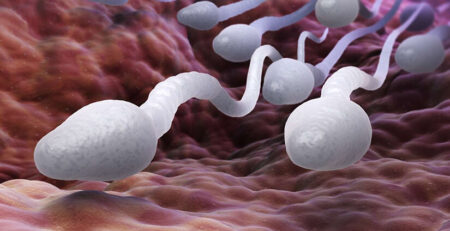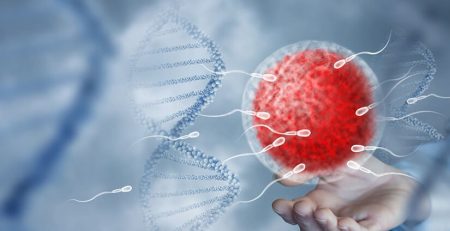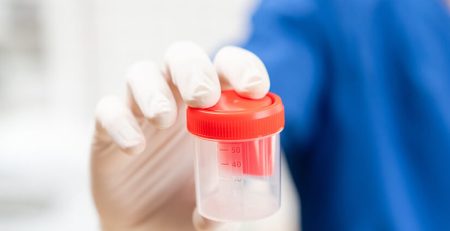Low Sperm Count in Men: Causes, Tests & Treatments
If you and your partner have been trying to get pregnant for a while without success, it may be time to take a closer look at male fertility. One of the most common, but often overlooked, issues is low sperm count. The good news? It’s manageable, and in many cases, treatable.
This blog will walk you through the causes, diagnostic tests, and most importantly, the most effective options for low sperm count treatment available today.
What is Low Sperm Count?
Low sperm count, medically known as oligospermia, means that the number of sperm in a man’s ejaculate is below the normal threshold. According to the World Health Organisation, the benchmark for a healthy sperm count is at least 15 million sperm per millilitre of semen. Anything lower can reduce the odds of fertilising an egg.
It’s important to know that a low count doesn’t necessarily mean infertility. Some men with reduced sperm counts can still conceive naturally, although it might take longer or require male fertility treatment support.

What Are the Symptoms of Male Infertility?
Low sperm count often presents silently, with no obvious signs until a couple experiences difficulty conceiving. However, some indicators can suggest a problem. These include reduced libido, erectile dysfunction, testicular discomfort or swelling, and hormonal imbalances. Such signs are often linked to underlying symptoms of male infertility.
Being vigilant about these physical or sexual health changes can lead to early diagnosis, a crucial factor in improving treatment outcomes for low sperm count.
What Causes Low Sperm Count?
Understanding the root cause is the first step in planning effective low sperm count treatment. Causes can be broadly categorised into medical, lifestyle, and environmental factors.
Medical Factors
Medical conditions that affect sperm production or delivery include varicoceles (enlarged veins in the scrotum), hormonal imbalances (low testosterone, FSH, or LH), infections like epididymitis, undescended testicles, and in rare cases, tumours.
Lifestyle Habits
Lifestyle plays a significant role. Obesity, excessive alcohol consumption, smoking, drug use (especially anabolic steroids), and chronic stress all negatively impact sperm health. Modifying these habits is often the first step in male fertility treatment.
Environmental Exposure
Prolonged exposure to industrial chemicals, radiation, or frequent use of saunas and hot tubs can damage sperm production. Even something as simple as regularly using a laptop on your lap could contribute to the issue.
Getting pregnant is now easier
Book IVF Consultation
How is Low Sperm Count Diagnosed?
A proper diagnosis is essential for successful low sperm count treatment. If a couple has been trying to conceive for a year or more without results, it’s time for a thorough fertility evaluation.
Semen Analysis
This test is the gold standard for evaluating male fertility. It measures not just the sperm count but also their movement (motility), shape (morphology), and volume.
Additional Testing
Depending on the initial results, your doctor may recommend hormone tests, a scrotal ultrasound, genetic screening, or even a testicular biopsy. These help pinpoint specific conditions causing low sperm output or quality.
Is Low Sperm Count Reversible?
A common question many couples ask is: is low sperm count reversible?
In many situations, yes, it can be. When the cause is lifestyle-related, such as smoking, poor diet, or heat exposure, making healthier choices often results in improved sperm production within a few months. Since sperm regeneration occurs every 64 to 72 days, positive changes can start showing results in just two to three cycles. This means that you have the power to make a significant difference in your fertility journey.
Medical treatments like correcting a varicocele or adjusting hormone levels can also be effective. However, reversibility depends on how early the issue is detected and whether the underlying cause is treatable.
Effective Low Sperm Count Treatment Options
Treatments are tailored to the individual’s diagnosis, severity of the condition, and overall health. Let’s explore the major categories:
Lifestyle Modifications
Simple lifestyle changes, such as a nutrient-rich diet, regular exercise, adequate sleep, and avoiding alcohol, smoking, and recreational drugs, can significantly improve sperm count. These changes are often the first recommendation in any male fertility treatment plan.
Medical Management
Doctors may prescribe hormone therapy if imbalances are detected. Antibiotics are used to treat infections, and supplements like zinc, selenium, folic acid, and vitamins C and E can boost sperm quality. These interventions often enhance the success of low sperm count treatment strategies.
Surgical Solutions
If physical blockages or varicoceles are present, surgical correction may be necessary. Procedures like varicocelectomy have shown significant improvement in sperm counts. In more severe cases, surgical sperm retrieval can help in assisted reproduction.
Assisted Reproductive Techniques (ART)
When natural conception isn’t possible, ART offers hopeful alternatives. These include:
- IUI (Intrauterine Insemination): A concentrated sample of healthy sperm is inserted directly into the uterus.
- IVF (In Vitro Fertilisation): Eggs and sperm are combined in a lab to create embryos, which are then transferred to the uterus.
- ICSI (Intracytoplasmic Sperm Injection): One high-quality sperm is injected directly into an egg—ideal for men with very low counts.
These methods are widely used today and can dramatically increase the chances of conception, especially when paired with low sperm count treatment.
Emotional Health and Fertility
Dealing with fertility challenges can be emotionally exhausting. Men often internalise these struggles, leading to feelings of inadequacy or shame. It’s essential to remember that male infertility is a medical issue, not a reflection of masculinity.
Counselling, open communication with your partner, and professional support can make the journey more manageable. Tackling both the physical and emotional sides of fertility is key to a holistic approach to male fertility treatment.
FAQs About Low Sperm Count
Yes, depending on the severity. With lifestyle adjustments and minor medical interventions, natural conception is still possible for many men. This means that there is hope, and with the right approach, you can still achieve your dream of becoming a parent.
Sperm regeneration cycles take 2–3 months, so results from low sperm count treatment can typically be seen in this period.
Yes. While men remain fertile longer than women, sperm quality and motility decline with age, particularly after 40.
They can give a basic indication but lack the depth and accuracy of clinical semen analysis.
Apart from difficulty conceiving, other signs may include erectile issues, low libido, pain in the testicles, or hormone-related symptoms.
Final Thoughts
Low sperm count is more common than most people realise. The key takeaway? It’s not a dead-end. Thanks to medical advances and better awareness, men today have multiple options for diagnosis, care, and treatment. Whether through lifestyle changes, medication, or assisted reproductive techniques, the path to parenthood remains open.
Consult Dr. Rhythm Gupta – IVF & Fertility Expert in New Delhi
If you or your partner are experiencing fertility challenges, seeking timely help is essential. Dr. Rhythm Gupta, an acclaimed IVF specialist in New Delhi, offers compassionate, evidence-based care for both male and female infertility. With a holistic and patient-focused approach, Dr. Gupta works closely with experts in male reproductive health to provide comprehensive and effective solutions tailored to your needs.
Book a confidential consultation today and explore the best low sperm count treatment options for your unique situation. Your journey to parenthood starts with the right support.

Dr. Rhythm Gupta
Consultant Obstetrician,
Gynaecologist & Infertility Specialist,
MBBS, M.S Obstetrics & Gynaecology
At Excel IVF, we don’t just treat tests and parameters. We partner with you through the emotional, scientific, and medical journey of fertility. Here, Dr. Rhythm Gupta, the leading IVF specialist in Delhi, shares insights from her years in reproductive medicine, breaking down myths, best practices, and what matters most in your path to becoming a parent.
Book a consultation today to understand better and begin your parenthood journey. Call: +91-8920963596 or Email Us: excelivf@gmail.com












